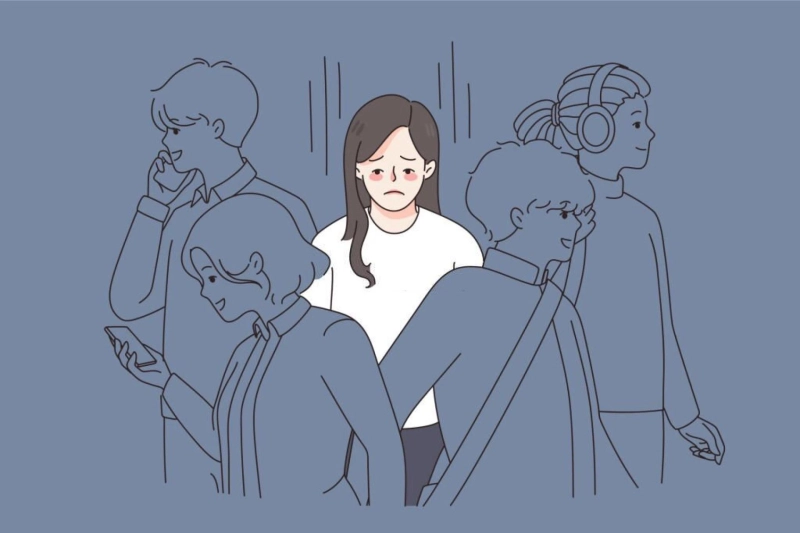Social anxiety disorder, commonly known as social phobia, is a debilitating condition characterized by overwhelming fear and anxiety in social situations. Individuals with social anxiety often experience intense worry about being judged, embarrassed, or humiliated, leading to avoidance of social interactions and significant impairment in daily functioning. This mental health condition can manifest in various settings, from casual social gatherings to professional environments, profoundly impacting an individual's quality of life.
The Impact of Social Anxiety
The effects of social anxiety can permeate every aspect of an individual's life, from personal relationships to academic or career pursuits. The constant fear of negative evaluation can hinder opportunities for social connection, limit career advancement, and diminish overall well-being. Left untreated, social anxiety can exacerbate symptoms over time, leading to increased isolation, depression, and even substance abuse as individuals attempt to cope with overwhelming feelings of distress.
Seeking Effective Treatment Options
Fortunately, there are several medications and therapeutic approaches available to help individuals manage social anxiety disorder and reclaim control over their lives. While therapy remains a cornerstone of treatment, medication can be a valuable adjunct for many individuals, particularly those with moderate to severe symptoms.
Selective Serotonin Reuptake Inhibitors (SSRIs)
SSRIs, such as sertraline, fluoxetine, and paroxetine, are commonly prescribed antidepressants that can effectively alleviate symptoms of social anxiety disorder. By increasing the availability of serotonin in the brain, SSRIs help regulate mood and reduce anxiety levels over time. While it may take several weeks for the full effects to be realized, SSRIs have been shown to significantly improve social anxiety symptoms in many individuals.
Serotonin-Norepinephrine Reuptake Inhibitors (SNRIs)
SNRIs, such as venlafaxine and duloxetine, work by increasing the levels of both serotonin and norepinephrine in the brain. This dual mechanism of action can provide robust relief from symptoms of social anxiety, including excessive worry, fear of judgment, and avoidance behaviors. SNRIs are often prescribed when individuals do not respond adequately to SSRIs or experience intolerable side effects.
Benzodiazepines
Benzodiazepines, such as clonazepam and alprazolam, are fast-acting sedatives that can provide immediate relief from acute symptoms of anxiety. While effective for short-term use, benzodiazepines carry a risk of tolerance, dependence, and withdrawal symptoms with prolonged use. Therefore, they are typically reserved for specific situations, such as panic attacks or situational anxiety, rather than long-term management of social anxiety disorder.
Beta-Blockers
Beta-blockers, such as propranolol, are medications commonly used to manage physical symptoms of anxiety, such as rapid heartbeat, trembling, and sweating. While they do not directly address the underlying psychological aspects of social anxiety, beta-blockers can be helpful in reducing the physiological arousal that accompanies anxious situations, such as public speaking or performance anxiety.
Considerations for Treatment
When considering medication options for social anxiety disorder, it's essential to consult with a qualified healthcare professional who can assess individual needs and develop a personalized treatment plan. Factors such as the severity of symptoms, presence of co-occurring conditions, medical history, and potential side effects should all be taken into account when determining the most appropriate course of action.
Combining Medication and Therapy
While medication can be effective in alleviating symptoms of social anxiety, it is often most beneficial when used in conjunction with therapy. Cognitive-behavioral therapy (CBT), in particular, has been shown to be highly effective in treating social anxiety disorder by helping individuals challenge negative thought patterns, develop coping strategies, and gradually confront feared situations in a supportive environment.
Conclusion
Social anxiety disorder can have a profound impact on an individual's life, affecting their relationships, career, and overall well-being. However, with the right combination of medication, therapy, and support, individuals can learn to manage their symptoms effectively and lead fulfilling lives. By understanding the various medication options available and working closely with healthcare professionals, individuals with social anxiety can take proactive steps towards recovery and empowerment. Visit https://buygreenxanax.com/ for Green Xanax Bars Online!


